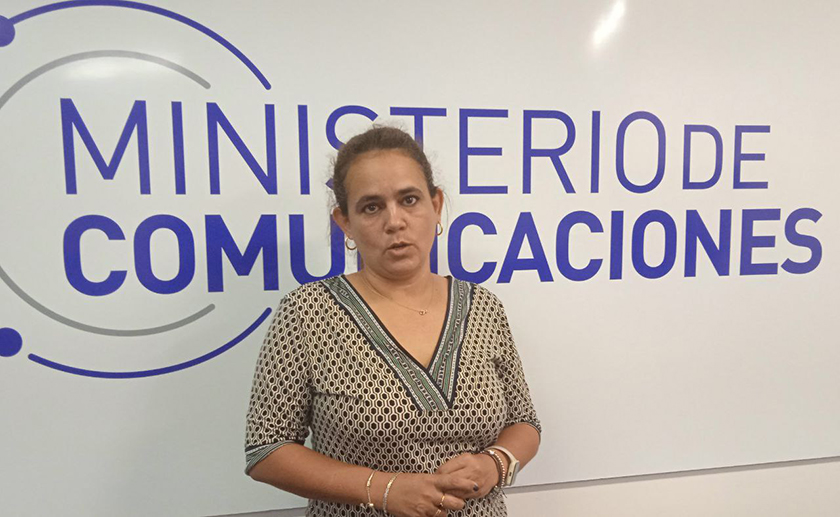
HAVANA, Cuba, Aug 4 (ACN) The limitation of access to blocked platforms for Cuba such as Cisco Webex and Zoom, and to first-line technological sites, are some of the effects that due to the economic, commercial and financial siege of the United States hinder the self-preparation or training of many Cuban professionals.
Ailyn Febles Estrada, president of the Cuban Informatics Association, an organization made up of some 8,000 engineers and technicians in these sciences, but with links to more than 20,000 people, including potential graduates in the technology fields, testifies to this.
We have been identifying for a long time how much the unfair policy impacts on our professionals when they cannot access training courses and international certifications, initially because there was no way to pay, make a transfer and much less obtain visas, the specialist told the Cuban News Agency.
She specified that when the virtual modality arose, at a distance, the platforms for videoconferences have been available but not accessible from Cuba, under the pretext that the measures associated with the blockade prohibit it and that the Caribbean Island appears on the list of nations sponsoring terrorism.
According to the president of the Informatics Association, Zoom concentrates more than 80 % of the training courses on technology given not only by universities, institutions and certifying companies, but also by the entire United Nations system on digital transformation, disruptive technologies, programming language and other topics to prepare professionals in the sector for the new scenarios.
Many of the courses are free, but the platform through which the conferences are given is blocked for Cuba, and the same happens with the access to scientific-technical information, to technology repositories, very useful given that more and more the construction of computer systems is from the reuse of components designed by others and stored there.
The same happens with devices that we could easily buy at very cheap prices, such as sensors for precision agriculture, for electromobility or electric vehicle recharging, for the automatic control of renewable energy, but their acquisition becomes very cumbersome, very expensive or impossible if they have any U.S. component or technology, said the PhD in Sciences.
Any digital transformation, informatization or digitalization project we want to carry out in the country for the Cuban citizen is often paralyzed because a group of certifications from the United States is required, since they are the owners of the companies of the main programming languages and database technologies, Febles Estrada explained.
In recent statements to the Cuban News Agency, Wilfredo Gonzalez Vidal, first deputy minister of communications, pointed out that the SourceForge site, one of the largest hosts of free software since 2010, included among its policies to veto access to Cuba and other countries on the U.S. blacklist.
There is also the impossibility to access the VirusTotal website, which provides free antivirus scanning of files and web pages; it includes 55 antivirus and 61 online detection engines.
For several years, relations were maintained with this company and it was used as one of the most important sources for technological surveillance, explained the senior official, but since September 2012 it was acquired by Google, and since then it is no longer possible to access this site, said Gonzalez Vidal.
All this limits the possibilities of exchange and improvement, which are necessary elements to raise the level of quality of services to customers, said the First Deputy Minister of Communications.
Sidebar

 Agencia Cubana de Noticias
Líder en información nacional
Agencia Cubana de Noticias
Líder en información nacional








Nos reservamos el derecho de no publicar los comentario que incumplan con las normas de este sitio